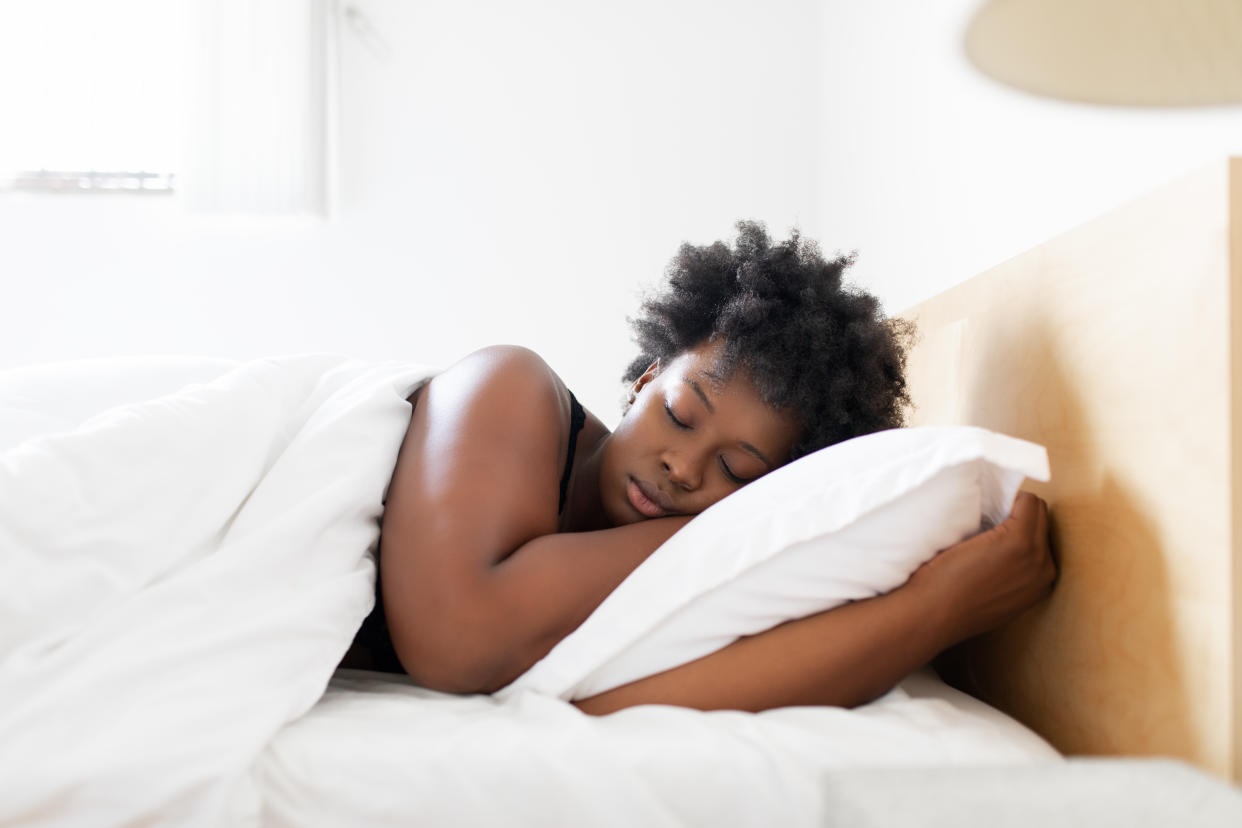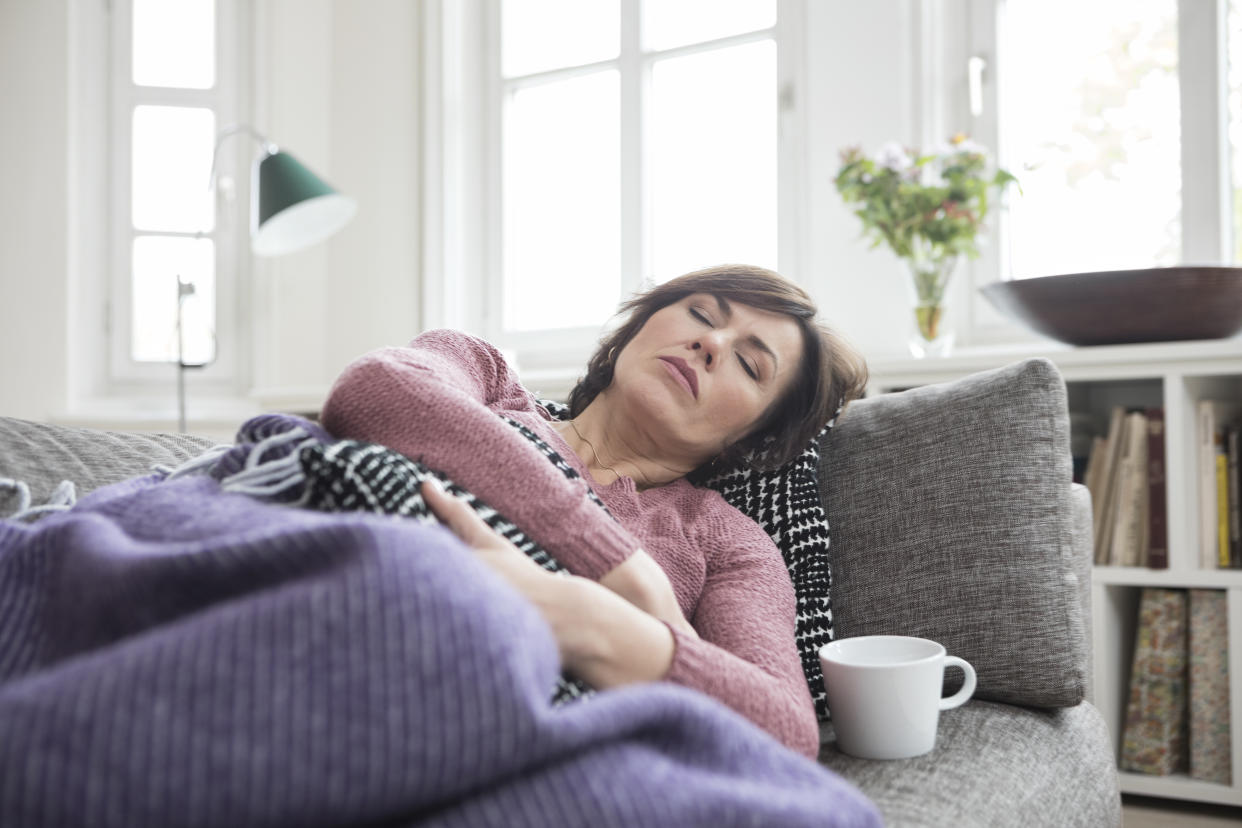How to sleep better during each phase of your menstrual cycle

Ever noticed that your sleep seems to be disrupted just before and during your period? You’re not alone.
Searches for ‘sleep different on period’ has risen by 8,400% year on year, and videos under the TikTok hashtag #periodinsomnia has nearly 30,000 views, meaning many are wondering just how much their menstrual cycle affects their sleep.
The menstrual cycle typically occurs across a 28-day period, and consists of four distinct phases: menstrual, follicular, ovulation, and luteal.
This cycle is an example of an infradian rhythm, which are bodily cycles that last longer than the 24-hour sleep-wake cycle, or circadian rhythm.
“Studies have shown that sleep disturbances are higher in people with irregular periods, so tracking your infradian rhythm rather than just tracking days of menstruation means you can more efficiently adjust your sleep schedule in line with what your body needs at each phase,” sleep expert at MattressNextDay, Martin Seeley says.
How to track your infradian rhythm
In terms of tracking your infradian rhythm during your menstrual cycle, Seeley says the first thing to do is make a note of any changes in your energy levels, mood, appetite and sleep patterns during each day of your monthly cycle.

"After a few weeks and months, you'll begin to see patterns, both physical and emotional, which will help you understand your infradian rhythm," he adds.
"Once you understand your infradian rhythm, you'll be able to adjust your life and schedule to fit; prioritising rest at times when you know you'll need it most, scheduling high energy tasks and activities for when you have the most energy to do them, and allowing yourself to say not to plans and social events when you know you'll need some alone time.
"Your infradian rhythm is unique to you, and will take some time to fully understand the cycle. By being consistent with your tracking and truly listening to your body, you can have a deeper connection with your natural rhythm."
How the menstrual cycle affects sleep
Menstrual phase (days 1-5)
Seeley says that women are twice as likely to experience insomnia before and during their period.
"Progesterone has a natural anti-anxiety effect, and can help you fall asleep more quickly and have less sleep disturbances. During this phase, progesterone levels are low, which can cause you to have difficulty falling asleep and staying asleep," he explains.
"Try breathing techniques to help you drift off faster. Count down from nine, going down a number on each deep breath. When you get to zero, start again but from eight, and continue – if you lose your place, start again from whichever number you last remember counting down from."
Follicular phase (days 6-14)
During the follicular phase, progesterone levels remain low but oestrogen levels start to risk towards the end which can boost your mood and energy and lead to a more restorative sleep.
"You'll often experience increased rapid eye movement (REM) sleep and have more vivid dreams [during this phase], too," Seeley says.
"This is generally the best phase for sleep, so make sure you allow yourself to prioritise rest at this time, to make the most of the quality sleep you’re able to get."

Ovulation phase (days 15-17)
This short window is the best time for conception, but it brings drastically fluctuating hormones with it which can lead to difficulty falling asleep or can cause you to wake up earlier than normal.
"Your body temperature naturally rises during this phase, which can increase the difficulty in falling asleep, so adjust the temperature in the bedroom to be cooler," Seeley says.
"In this high energy phase, you might feel like you don’t need as much sleep as usual, but make sure you stick to your usual bedtime to keep your regular circadian rhythm. Do some light stretches before going to bed to burn off some energy before trying to sleep."
Luteal phase (days 18-28)
The final phase of your menstrual cycle is when you will most likely notice signs of premenstrual syndrome (PMS) such as mood swings, headaches, and breast tenderness – all of which can make it difficult to sleep.
"Combat cramps and pain that keep you awake, and have a warm relaxing bath before bed to soothe cramps and soothe muscles, ready for sleep," Seeley suggests. "It can be tempting to have a glass of wine to relax during this phase, but the sedative effect of alcohol makes you fall into deep sleep more quickly, and the cycle is imbalanced, leading to sleep disruptions, so avoid drinking before bed."
Menstrual cycles: Read more
More than a million women keep period sick days a secret (Yahoo Life UK, 6-min read)
The men's guide to menstruation: Every question you have about periods, answered (Yahoo Life UK, 4-min read)
How a woman's period changes throughout her life (Yahoo Life UK, 5-min read)


